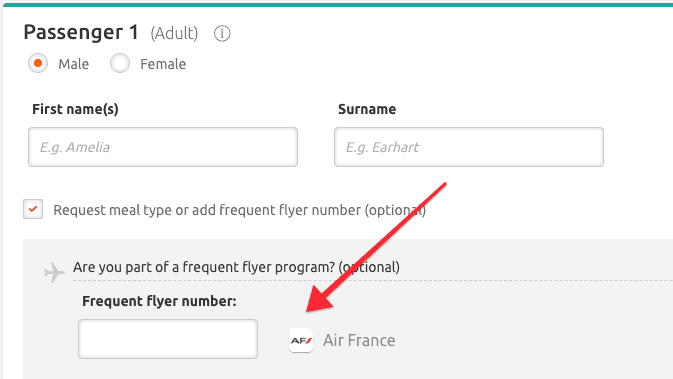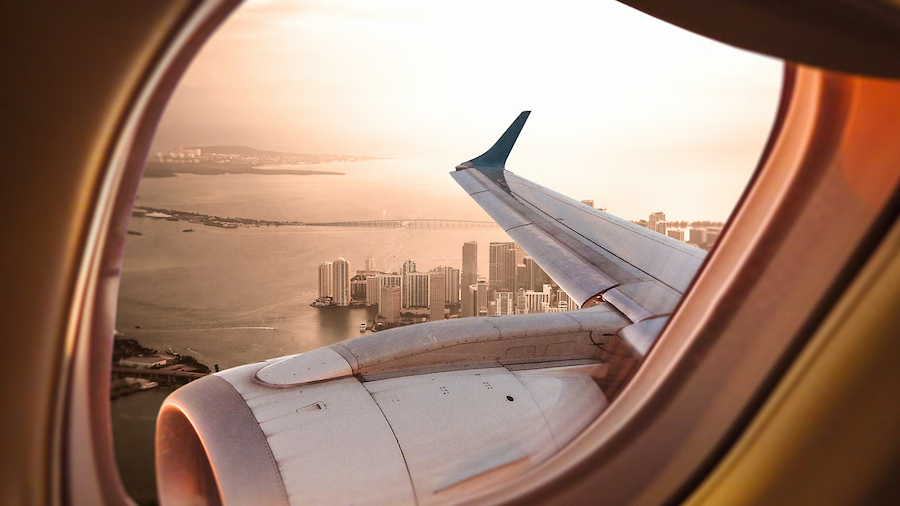Tips
What is a Frequent-Flyer Number? How to Get One For Yourself

Frequent-flyer numbers are essential for anyone looking to maximize their travel benefits. A frequent-flyer number is a unique identification code issued by an airline that allows travellers to accumulate miles or points for the flights they take.
This number not only helps airlines track a passenger’s journey but also enables them to access various rewards, from free flights to lounge access.
For those who are regular travellers, understanding how to obtain and manage a frequent-flyer number can lead to significant advantages.
From understanding the best ways to earn miles to knowing how to optimize travel experiences, knowing about frequent-flyer numbers is invaluable for anyone interested in air travel.
Key Takeaways
- A frequent-flyer number allows travellers to earn rewards for their flights.
- These numbers can be easily obtained through airline loyalty programs.
- Managing frequent-flyer accounts enhances travel benefits and rewards.
What are Frequent-Flyer Numbers?
Frequent-flyer numbers are essential identifiers in the airline industry, forming the backbone of loyalty programs. They allow airlines to track and reward customer loyalty effectively while providing travellers with a way to accumulate benefits based on their flying habits.
Airlines typically offer these numbers through loyalty programs, which often include various tiers of membership, leading to enhanced benefits as a traveller engages more with the airline. The ability to track and redeem these rewards makes frequent flying more enjoyable and cost-effective.
Understanding Loyalty Programs
Loyalty programs are marketing strategies designed to encourage repeat business. Airlines create these programs to reward frequent travellers. Each program typically requires members to enrol and provide personal information, after which they receive a unique frequent-flyer number.
This number tracks miles or points earned based on flights taken. Key factors include the distance flown, fare class, and sometimes additional criteria like ticket price.
The more a traveller flies, the more points they can accumulate, which can be redeemed for various rewards such as free flights, upgrades, or other travel benefits.
Usage of Frequent-Flyer Numbers
A frequent-flyer number serves multiple purposes within loyalty programs. It acts as a traveller’s identity in the airline’s system, protecting their accumulated rewards and preferences.
When booking flights, travellers should enter their frequent-flyer number to ensure they receive the appropriate credit for their flights.
Additionally, the number facilitates the tracking of accumulated miles and the status achieved within the loyalty program. Elite status can lead to exclusive perks like priority boarding, access to lounges, and bonus miles.
How to Obtain a Frequent-Flyer Number
A frequent-flyer number is crucial for travellers seeking to earn rewards through airline loyalty programs. Obtaining this number involves enrolling in specific frequent-flyer programs and meeting certain registration requirements.
1. Enrolling in Frequent-Flyer Programs
To obtain a frequent-flyer number, an individual must first enrol in the desired airline’s loyalty program. This can typically be done online through the airline’s website or mobile app.
The process usually involves filling out a registration form that requests personal details such as name, email address, and contact information. Some airlines may offer enrollment during the booking process, simplifying the experience.
After submitting the form, the traveller usually receives an immediate confirmation email with their frequent-flyer number.
2. Requirements for Registration
Different airlines may have varying requirements for registering in their frequent-flyer programs. Generally, basic details like a valid email address and age confirmation are necessary.
Some programs may also require travellers to be at least 18 years old. Additionally, certain airlines may request identification documents for verification purposes.
Travellers should review terms and conditions before enrolling, as some programs have specific rules regarding eligibility and point accrual. Signing up is usually free, allowing frequent travellers to start earning rewards with minimal barriers.
Benefits of Frequent-Flyer Programs
Frequent-flyer programs offer several advantages to travellers who regularly use specific airlines. These benefits can enhance the travel experience, providing more value for loyalty. Key advantages include mileage accrual, tiered membership levels, and access to partnerships with other airlines and services.
1. Mileage Accrual and Redemption
Mileage accrual is one of the primary benefits of frequent-flyer programs. Travellers earn miles for every flight booked, which accumulates over time. These miles can be redeemed for free flights, upgrades, and other travel-related perks.
For example, a member may earn miles based on the distance flown, fare class, or even through special promotions. Many airlines also provide additional opportunities to earn miles through partnerships with hotels, car rental agencies, and credit cards.
Members can redeem their accumulated miles in various ways, including flight tickets, baggage fee waivers, and even merchandise. This flexibility adds significant value, as frequent travellers can choose how best to use their hard-earned miles.
2. Tiered Membership Levels
Frequent-flyer programs usually feature tiered membership levels. As travellers reach specific mileage or point thresholds, they ascend to higher tiers, unlocking additional benefits. This tiered structure incentivizes loyalty and maximizes value.
Each tier often comes with unique advantages such as priority boarding, complimentary upgrades, and access to exclusive lounges. Higher-tier members may also enjoy bonus mile promotions, allowing them to earn miles more quickly.
The criteria for reaching these tiers vary by airline, but customers typically see tangible benefits as they invest more in their chosen airline. This system not only rewards loyalty but also creates a sense of accomplishment among frequent flyers.
3. Alliance and Partner Benefits
Frequent-flyer programs are part of airline alliances, allowing members to earn and redeem miles across multiple carriers. These alliances expand travel options significantly, making it easier for customers to find flights that fit their schedules.
In addition to flights, members often enjoy reciprocal benefits with partner hotels, rental car services, and other travel-related companies. For instance, booking a hotel through a partnered service may yield bonus miles, enhancing the travel experience.
By utilizing these alliances, frequent flyers maximize their rewards, making it easy to reach their travel goals. The interconnected nature of these programs provides members with greater flexibility and options.
How to Manage a Frequent-Flyer Account
Effective management of a frequent-flyer account is essential for maximizing rewards and ensuring account security. It involves safeguarding personal information, keeping details updated, and monitoring mileage and activity.
Account Security
Securing a frequent-flyer account is paramount in today’s digital landscape. Account holders should use strong passwords that combine upper and lower-case letters, numbers, and special characters. Regularly updating passwords will provide an additional layer of protection.
Two-factor authentication (2FA) is highly recommended, as it adds a second verification step during login. This feature can be found in account settings and requires a verification code sent to a mobile device or email.
It is also crucial to keep an eye out for phishing attempts. Users should never share their passwords via email or disclose sensitive information to unverified sources. Regular account checks will help identify unauthorized activity quickly.
Personal Information Updates
Keeping personal information up-to-date is essential for effective communication and benefit retrieval. Frequent travellers should regularly log into their accounts to ensure that personal details, including contact information and preferences, are current.
Address changes and updates to passport information should be made promptly, especially before international flights. This ensures compliance with airline policies and regulatory requirements.
Many loyalty programs offer options for setting preferences regarding seating and meal choices, which should also be updated as personal preferences change. Accurate information can lead to a more personalized travel experience.
Tracking Mileage and Activity
Monitoring mileage and activity within the frequent-flyer account is key for maximizing rewards. Users should familiarize themselves with how to access their mileage balance, upcoming flights, and past flight history through the airline’s website or mobile app.
Airlines often display both mileage accrued and the status needed for elite upgrades. Keeping track of this information can help travellers plan future flights effectively.
Setting alerts for upcoming expiration dates on miles or points is prudent. Some programs allow users to earn more miles through partner offers, which can enhance earning potential when used strategically.
Frequent-Flyer Number Terms and Conditions
Understanding the terms and conditions associated with frequent-flyer numbers is essential for maintaining account advantages. Two critical aspects to consider are expiration policies and account inactivity rules.
1. Expiration Policies
Many airlines implement expiration policies for the miles or points associated with frequent-flyer numbers. Typically, these miles can expire after a period of inactivity, which may vary by airline. For instance, miles might expire after 24 months of not earning any additional miles.
To prevent expiration, customers can often extend the life of their miles by:
- Taking a qualifying flight.
- Using a co-branded credit card.
- Engaging in partnerships, such as hotel stays or car rentals.
It is important to review each airline’s specific policy to avoid losing valuable rewards.
2. Account Inactivity Rules
Account inactivity rules also play a significant role in managing frequent-flyer numbers. If an account remains inactive for a specified duration, it may lead to deactivation. The standard period of inactivity is often 12 to 24 months, depending on the airline.
To maintain an active account, members should consider the following:
- Regularly flying with the airline or its partners.
- Making purchases through the airline’s shopping portal.
- Using the frequent-flyer credit card regularly.
Reviewing the specific inactivity rules of the airline can help avoid unintended account closures and loss of accumulated rewards.
Frequently Asked Questions
How can I obtain a frequent flyer number with an airline?
To obtain a frequent flyer number, individuals must enrol in the frequent flyer program of their preferred airline. This process often involves filling out an application form online or at an airport.
Where can I find my existing frequent flyer number?
Existing frequent flyer numbers can typically be found on a traveller’s membership card, account profile on the airline’s website, or in confirmation emails related to bookings. Travellers can also contact customer service for assistance.
What are the requirements to become a qualified frequent flyer?
Requirements to become a qualified frequent flyer often include making a minimum number of flights or earning a certain amount of miles within a specified timeframe. Each airline has its own criteria, so it’s vital to review the program details.
What is the process for registering as a frequent flyer member?
Registering as a frequent flyer member usually involves submitting personal information, such as name, address, and contact details. This registration can often be completed online through the airline’s website or app.
How do different airlines designate their frequent flyer numbers?
Different airlines use various formats for their frequent flyer numbers, which can include a mix of letters and numbers. Each airline assigns a unique code that helps track a member’s flights and rewards.
Can you explain the advantages of having a frequent flyer number?
Having a frequent flyer number allows travellers to earn miles or points for eligible flights, which can be redeemed for rewards such as free tickets, upgrades, and special offers. This number also often grants access to exclusive services and promotions within the airline’s loyalty program.




